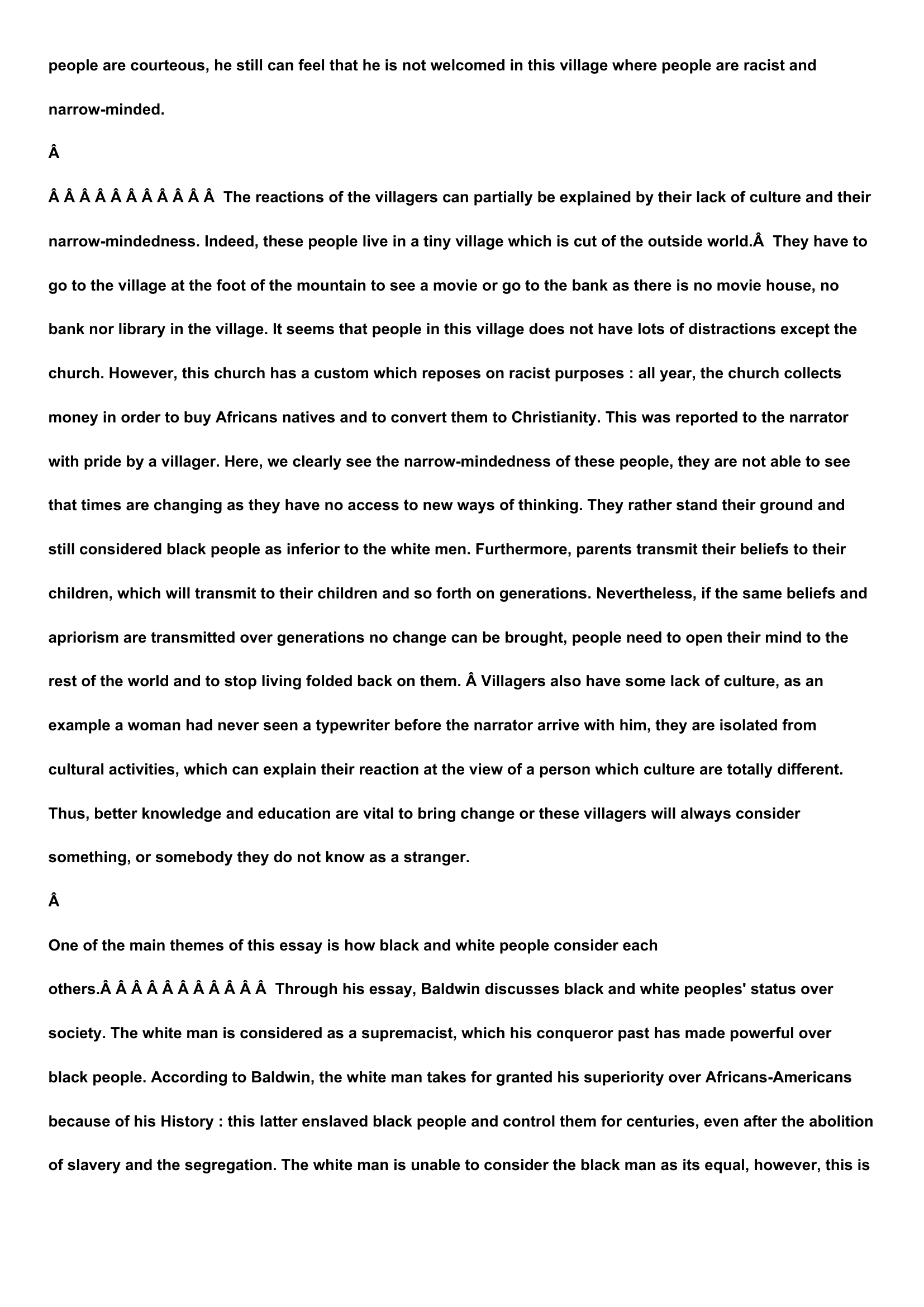Essay : Stranger in the village
Publié le 23/09/2017

Extrait du document
«
people are courteous, he still can feel that he is not welcomed in this village where people are racist and
narrow-minded.
The reactions of the villagers can partially be explained by their lack of culture and their
narrow-mindedness.
Indeed, these people live in a tiny village which is cut of the outside world. They have to
go to the village at the foot of the mountain to see a movie or go to the bank as there is no movie house, no
bank nor library in the village.
It seems that people in this village does not have lots of distractions except the
church.
However, this church has a custom which reposes on racist purposes : all year, the church collects
money in order to buy Africans natives and to convert them to Christianity.
This was reported to the narrator
with pride by a villager.
Here, we clearly see the narrow-mindedness of these people, they are not able to see
that times are changing as they have no access to new ways of thinking.
They rather stand their ground and
still considered black people as inferior to the white men.
Furthermore, parents transmit their beliefs to their
children, which will transmit to their children and so forth on generations.
Nevertheless, if the same beliefs and
apriorism are transmitted over generations no change can be brought, people need to open their mind to the
rest of the world and to stop living folded back on them.
Villagers also have some lack of culture, as an
example a woman had never seen a typewriter before the narrator arrive with him, they are isolated from
cultural activities, which can explain their reaction at the view of a person which culture are totally different.
Thus, better knowledge and education are vital to bring change or these villagers will always consider
something, or somebody they do not know as a stranger.
One of the main themes of this essay is how black and white people consider each
others. Through his essay, Baldwin discusses black and white peoples' status over
society.
The white man is considered as a supremacist, which his conqueror past has made powerful over
black people.
According to Baldwin, the white man takes for granted his superiority over Africans-Americans
because of his History : this latter enslaved black people and control them for centuries, even after the abolition
of slavery and the segregation.
The white man is unable to consider the black man as its equal, however, this is.
»
↓↓↓ APERÇU DU DOCUMENT ↓↓↓
Liens utiles
- Essay Islam in the UK
- Essay: The Way Up to Heaven
- Essay English : In Arthur Miller’s play “All my sons”, Joe Keller is a hero in his family and in the neighborhood even if he did some very awful things.
- Essay The great Gatsby/bluest eye
- Claude Monet I INTRODUCTION Monet's Gardens at Giverny From 1890 until his death in 1926, Claude Monet lived and painted in the small village of Giverny, near Paris.




